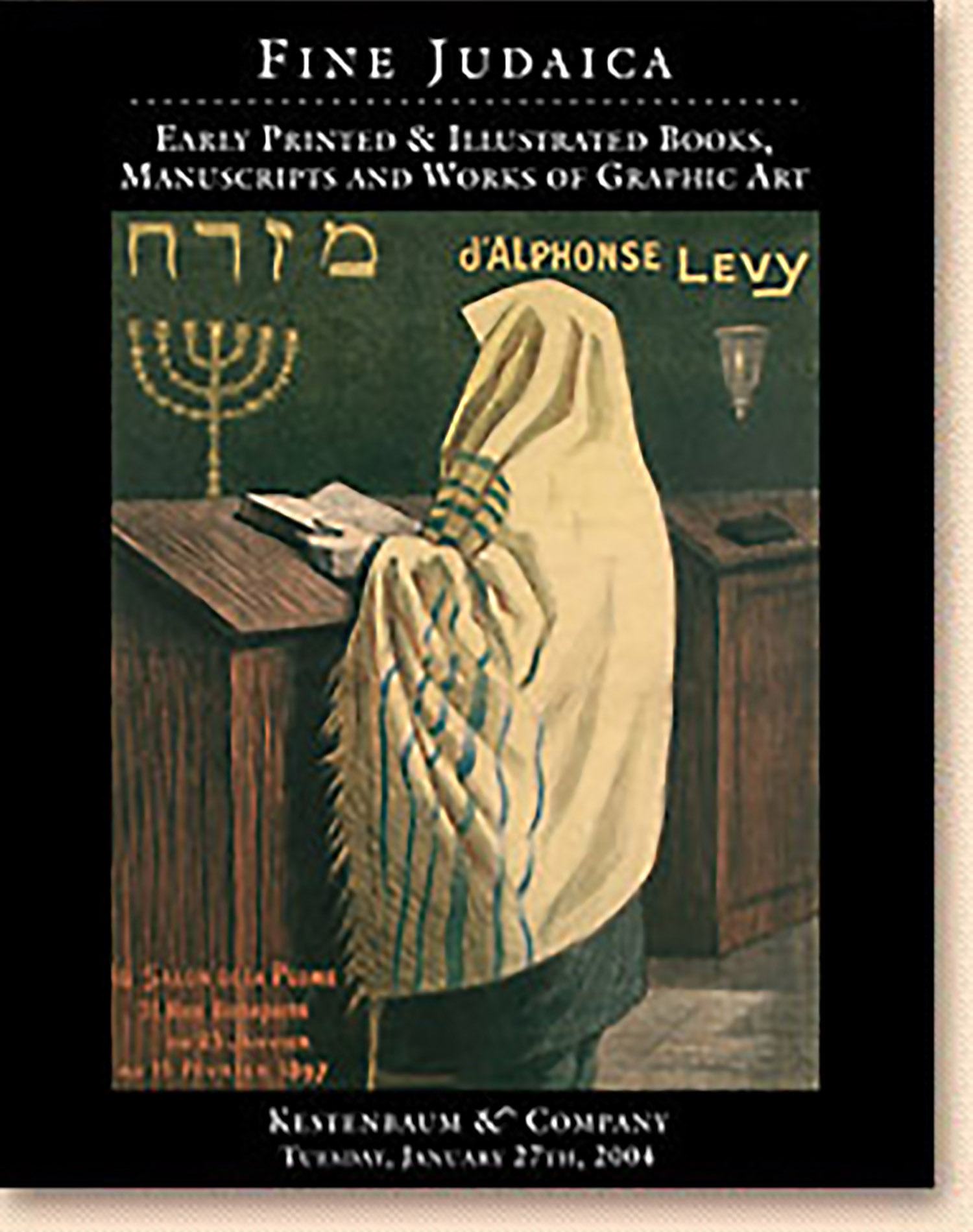(GRADE, CHAIM).

AUCTION 22 |
Tuesday, January 27th,
2004 at 1:00
Fine Judaica: Printed Books, Manuscripts and Works of Graphic Art Including Holy Land Maps, Illustrated Books, Photography and Graphic Art from The Collection of Daniel M. Friedenberg of Greenwich, Conn
Lot 215
(GRADE, CHAIM).
v.d
Est: $1,000 - $1,500
PRICE REALIZED $1,600
Chaim Grade (1910-1982) was one of the great Yiddish poets and novelists of the last century, Until the age of 22, he attended various Yeshivoth, including seven years of intensive study in his native Vilna under the tutelage of R, Abraham I. Karelitz, later known as the Chazon Ish - whose extraordinary saintly character was magnificentlly portrayed in Grade’s novel Tzemach Atlas (1967-68) and his elegy Der Mentsch Fun Fire(1962). Grade’s works are permeated with some of the most outstanding lyrics ever composed in Yiddish , and his novels are in the finest prose of the post- classical generation. Many scholars, both Jewish and Gentile, Including the Polish Nobel Laureate Czeslaw Milosz felt that Grade deserved the Nobel Prize for his accurate yet emotional portrayal of pre- Holocaust Jewry.
Of special interest is the fact that Rabbi Soloveitcheik’s letter is dated Erev Yom Kippur 1970. Written in an elegant Yiddish, he states that he marvels at Grade’s artistry in depicting the character of a “Litvishen Gaon” of the highest calibre, articulated ontologically, as an all encompassing, multi-faceted personality with “neshomahdikeit” (soulfullness)”. In a postscript he adds that he has read Grade’s descriptions of Yom Kippur in two of his works. Most impressive, however, is the story of his mother, going home on Yom Kippur afternoon to feed the cats (cats don’t have to fast!) “A touching story! ”
Finkelstein states that reading his book ”was part of my therapy during my illness...Your description of the...Hazon Ish is magnificent...it ranks..wth the foremost novels of our time.” The character “Chlavna” in Grade’s epic poem “Di Musarnikes” was based upon the personality of Rabbi Nekritz
